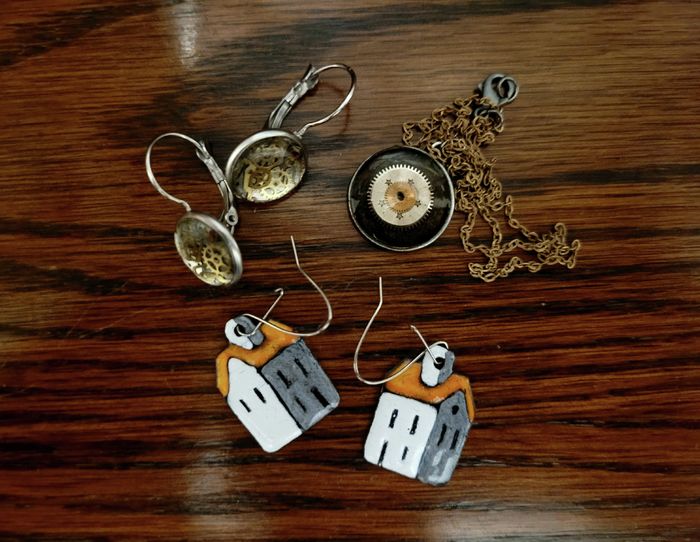You don’t need new clothes to reinvent yourself
It’s our older clothing that holds the most value, Zoe Blackburn argues

The shame cycle commonly known asy January is here. During this time it’s easy to find yourself mindlessly scrolling on ASOS in the hope that an updated fashion sense will lead you to make better life decisions. The long lists of resolutions we’re expected to draw up inevitably make us feel guilt, regret and dissatisfaction about ourselves – about what we’ve done, what we look like, and how we live our lives.
Who we are and what we wear feel strangely connected, especially for those of us who grew up with Devil Wears Prada-style makeovers that seemed to plague early 2000s romcoms. A new outfit – we were told – meant a glittery new life of walk-in wardrobes and improbably fast-tracked careers complete with a boyfriend cast from the ‘People’s Sexiest Man Alive’ list. I’m not saying you can’t use fashion to 'fake it till you make it', but it’s not necessary or productive to feel like a fraud.
“The notion that you need a blank slate to change your life ... is a total and utter myth”
Feeling like an imposter, like the current version of 'you' isn’t good enough, is hardly a new sensation for students at Cambridge, where other people always seem to have the best ideas, internships, relationships and, yes, outfits. But the notion that you need a blank slate to change your life, whether it’s the way you pick Hinge dates or dissertation topics, is a total and utter myth. Buying a new identity in Urban Outfitters is the capitalist equivalent of running to the nearest exit in a house fire – the thrill and relief die down when you remember you left everything that matters behind.
“Meaningfully changing yourself tends to involve looking backwards as much as forwards”
And I get it. It’s hard to resist buying new things or feeling rubbish for not having new things, in a society that asks us to better ourselves (whatever that means) every year. New Year’s resolutions don’t really allow for the plateau, or the possibility we might actually feel good enough as we are. For women, it feels like novelty is expected from us all year round, a trick we learn to make ourselves look shiny and interesting enough to date or employ for any length of time. A new dress, haircut, or colour palette, we think subconsciously, might stop us from being replaced by a new woman. But you don’t need to reinvent yourself just because society tells you to, and anyway, meaningfully changing yourself tends to involve looking backwards as much as forwards.

For years I’ve been the proud owner of what some might call a 'floordrobe'. It includes once oversized t-shirts, a prom dress that became a marriage formal dress, and a truly chaotic medley of my sister’s early 2000s tank tops and my mum’s pearls from the 80s. Clothes are more than commodities, and the memories they provoke in us increase their value to much more than what we bought them for.
My favourite pieces of clothing are not the newest by any means, from the red dress I found charity shopping with my friends, to the yellow playsuit that my mum embroidered flowers onto when I came home with a broken nose (don’t ask). I don’t like them because they’re new – they’re not. I like them because they tell stories, and because they remind me of how different the person wearing them is from the person who bought them.
Clothes, most of the time, are on us for the best and worst moments of our lives. They have the capacity to hold love, laughter, and pain, but also resilience. Before you get caught up in the early January shame spiral, just remember that resilience, much more than novelty, is something to be proud of.
 News / Cambridge students set up encampment calling for Israel divestment6 May 2024
News / Cambridge students set up encampment calling for Israel divestment6 May 2024 News / Cambridge postgrad re-elected as City councillor4 May 2024
News / Cambridge postgrad re-elected as City councillor4 May 2024 News / Proposed changes to Cambridge exam resits remain stricter than most7 May 2024
News / Proposed changes to Cambridge exam resits remain stricter than most7 May 2024 News / Some supervisors’ effective pay rate £3 below living wage, new report finds5 May 2024
News / Some supervisors’ effective pay rate £3 below living wage, new report finds5 May 2024 Fashion / Class and closeted identities: how do fits fit into our cultures?6 May 2024
Fashion / Class and closeted identities: how do fits fit into our cultures?6 May 2024





